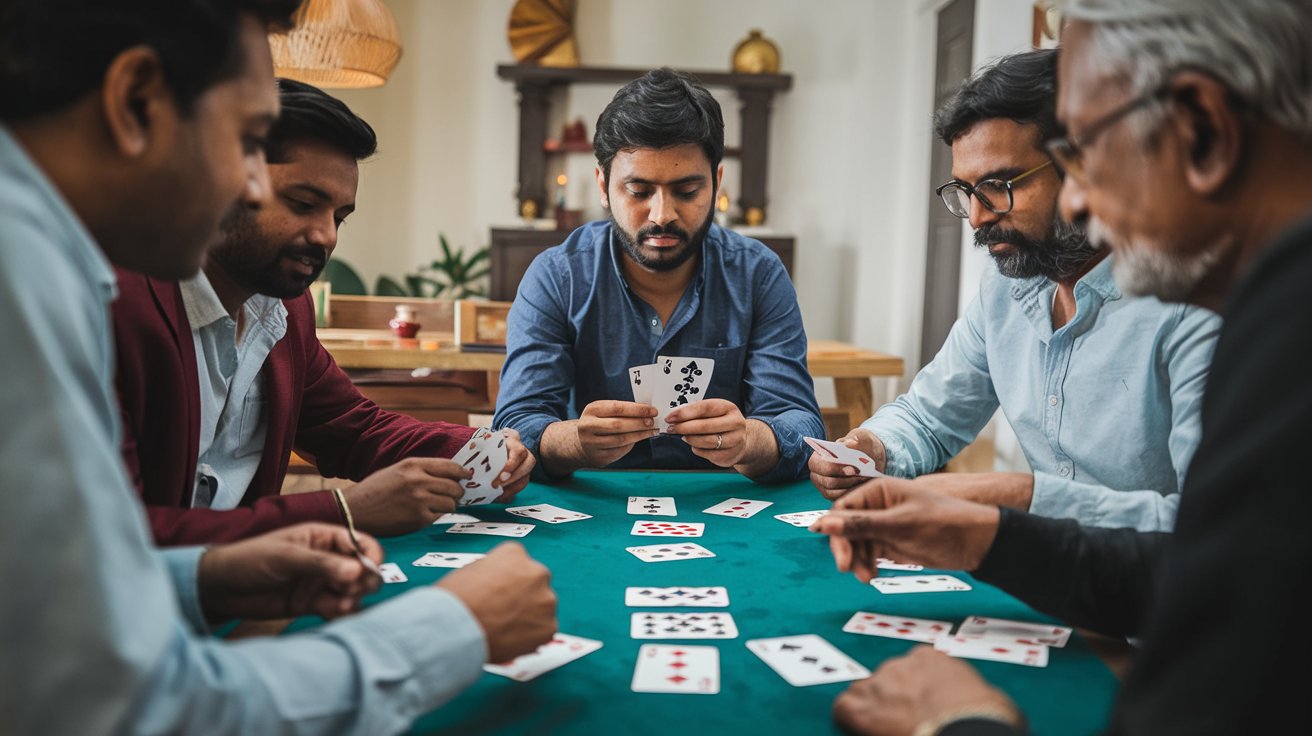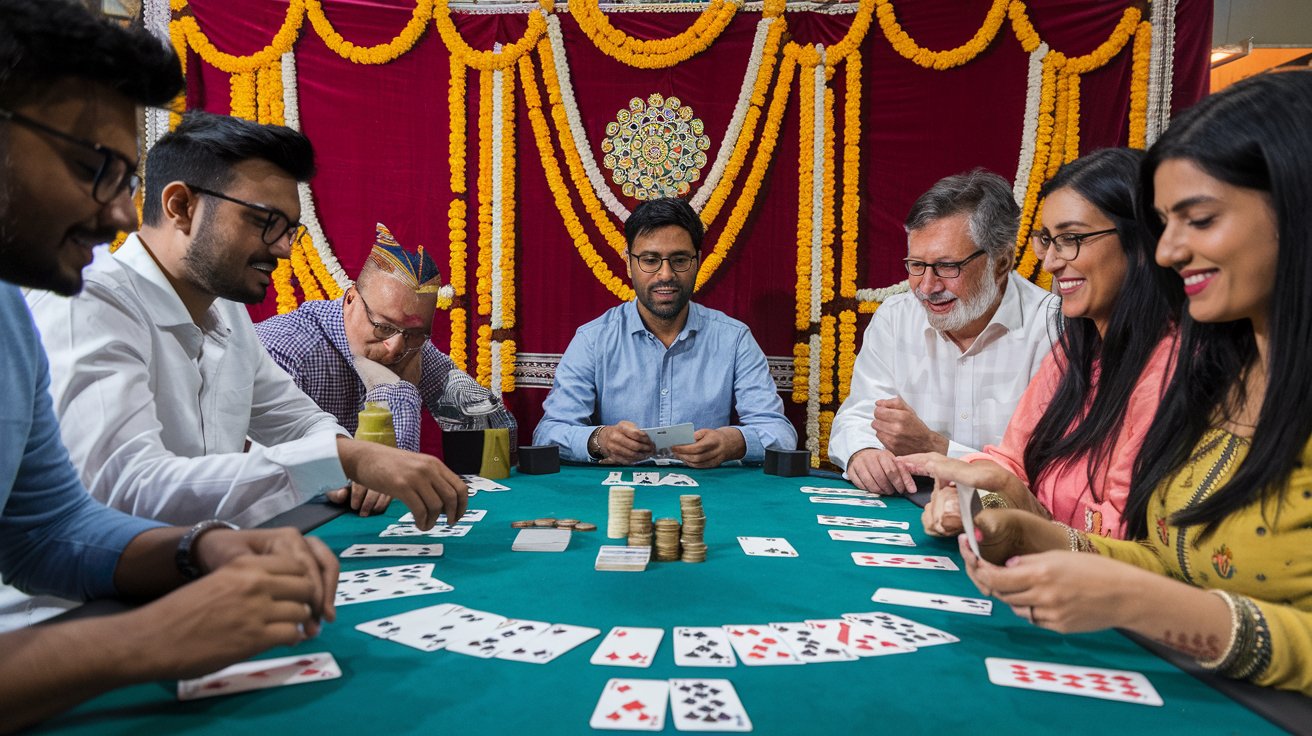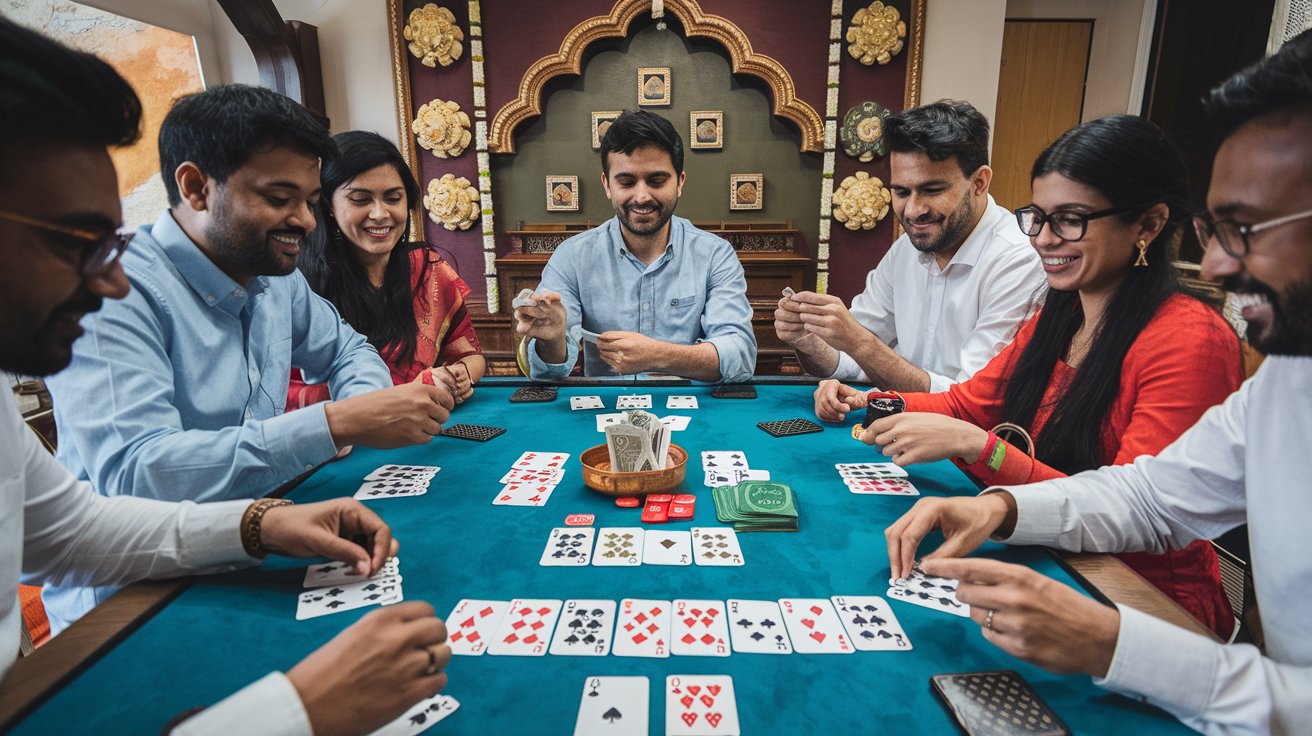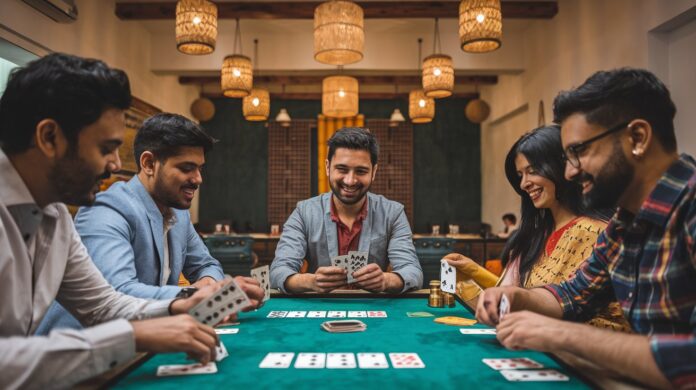Rummy, a card game cherished across India, is more than just a pastime. It’s a vibrant reflection of strategy, patience, and cultural values deeply embedded in the Indian way of life. From bustling family gatherings during Diwali to casual evenings with friends, rummy has woven itself into the fabric of Indian society. But what makes this game so special? Beyond its entertainment value, rummy mirrors the strategic thinking, adaptability, and social dynamics that define Indian culture. In this blog, we’ll explore how rummy serves as a lens into the strategic mindset of India, its historical roots, and why it remains a beloved tradition in the digital age.
The Origins of Rummy in India: A Game Rooted in Tradition

Rummy’s journey in India is a tale of cultural fusion. While its exact origins are debated, many trace its roots to the Western card game “Conquian,” brought to India during the colonial era. Over time, it evolved, blending with local games like “Teen Patti” and adapting to the Indian ethos. Today, rummy is synonymous with skill-based gaming in India, recognized legally as a “game of skill” rather than mere chance.
This distinction is key. In a country where intellect and strategy have been celebrated for centuries—think of ancient games like chess (Chaturanga) or the strategic diplomacy of Chanakya’s Arthashastra—rummy fits perfectly. It’s a game that rewards observation, planning, and mental agility, traits that resonate with India’s cultural reverence for sharp minds.
The Strategic Core of Rummy: A Mirror to Indian Life
At its heart, rummy is a game of strategy. Players must meld cards into sets and sequences, discard wisely, and outwit opponents—all while keeping their intentions hidden. This gameplay mirrors several aspects of Indian culture, where strategy is not just a skill but a way of life.
1. Patience and Timing
In rummy, rushing can lead to disaster. A player might hold onto a card, waiting for the perfect moment to complete a sequence, much like how patience is a virtue in Indian traditions. Whether it’s waiting for the right monsoon to sow crops or timing a festival celebration, Indians have long mastered the art of biding time. Rummy reflects this cultural trait, teaching players that success comes to those who wait and plan.
2. Observation and Adaptability
A skilled rummy player watches their opponents’ moves—every discard, every draw—piecing together clues about their strategy. This mirrors the keen observation ingrained in Indian society. From bustling marketplaces where vendors read customers’ cues to negotiate prices, to family dynamics where understanding unspoken emotions is key, Indians excel at adapting to shifting circumstances. Rummy hones this ability, making it a microcosm of real-life decision-making.
3. Resource Management
With only 13 cards in hand, rummy players must make the most of limited resources. This echoes India’s jugaad philosophy—an innovative approach to problem-solving with whatever’s available. Historically, Indian households have thrived on frugality and ingenuity, turning constraints into opportunities. In rummy, discarding a high-value card or holding onto a joker requires the same resourceful mindset.
4. Social Strategy
Rummy is rarely a solitary game. Played in groups, it’s a social experience where bluffing, reading body language, and building alliances come into play. This reflects India’s collectivist culture, where relationships and community are paramount. A rummy table often buzzes with laughter, banter, and subtle psychological warfare—much like a family negotiation or a village gathering.
Rummy and Indian Festivals: A Strategic Celebration

No discussion of rummy in Indian culture is complete without mentioning its role during festivals. Diwali, the festival of lights, is synonymous with card games, and rummy reigns supreme. Families gather around, stakes (often symbolic) are set, and the game becomes a battle of wits. But it’s not just about winning—it’s about bonding, strategizing, and celebrating together.
During these festive games, rummy showcases the Indian knack for blending fun with purpose. Players might lose a round deliberately to keep the mood light, reflecting the cultural value of harmony over rivalry. Yet, beneath the surface, every move is calculated—a testament to the strategic depth Indians bring to even the most joyous occasions.
The Psychology of Rummy: A Cultural Parallel
Rummy isn’t just a game of cards; it’s a game of minds. Psychologically, it taps into traits that Indians have nurtured for generations.
- Focus and Discipline: Completing a rummy sequence requires concentration, akin to the discipline seen in yoga or classical music training.
- Risk Assessment: Deciding whether to pick from the open deck or the closed pile mirrors the calculated risks Indian entrepreneurs take in business.
- Emotional Control: A good rummy player never reveals frustration—a trait akin to the stoicism valued in Indian philosophy.
These parallels show how rummy isn’t just entertainment but a training ground for life skills rooted in Indian culture.
Rummy in the Digital Age: Tradition Meets Innovation
As India embraces technology, rummy has evolved too. Online rummy platforms have surged in popularity, bringing the game to millions of smartphones. Yet, even in its digital avatar, rummy retains its cultural essence. Players still rely on strategy, observation, and timing, but now they compete with opponents across the country—or even the globe.
This shift reflects India’s ability to adapt traditions to modern contexts. Just as Bollywood blends classical dance with contemporary beats, online rummy marries age-old strategy with cutting-edge tech. It’s a testament to how Indian culture evolves without losing its core.
SEO Tip: Keywords like “online rummy,” “rummy strategy,” and “Indian card games” naturally fit here, boosting search visibility.
Why Rummy Resonates with Indian Values
Rummy’s enduring appeal in India lies in its alignment with cultural values:
- Meritocracy: Unlike games of pure luck, rummy rewards skill, echoing India’s respect for earned success.
- Community: It’s a shared experience, reinforcing the importance of togetherness.
- Mental Agility: In a nation that produced mathematical giants like Aryabhata, rummy’s demand for quick thinking feels like home.
Moreover, rummy transcends class, region, and language. From rural chai stalls to urban living rooms, it’s a unifying force—a rare feat in a country as diverse as India.
How to Master Rummy: Tips from a Cultural Lens
Want to excel at rummy and channel your inner Indian strategist? Here are some tips inspired by cultural insights:
- Observe Like a Hawk: Watch your opponents’ discards to guess their game plan, just as a street vendor reads a hesitant buyer.
- Hold Your Cards Close: Don’t reveal your strategy too soon—patience is your ally.
- Adapt on the Fly: If your sequence isn’t forming, pivot to a new plan, embodying jugaad.
- Prioritize Jokers: In rummy, jokers are gold. Treat them like the wildcard opportunities life throws at you.
- Stay Calm: A cool head wins more games than a hot temper—channel that Indian resilience.
Rummy vs. Other Indian Games: A Strategic Showdown

How does rummy stack up against other Indian classics like Teen Patti or Carrom? While Teen Patti leans heavily on luck and bluffing, rummy is a purer test of skill. Carrom, meanwhile, demands physical precision, whereas rummy is all mental. This cerebral edge makes rummy a unique reflection of India’s strategic heritage, standing shoulder-to-shoulder with chess as a game of intellect.
The Future of Rummy in India
As India races toward a digital future, rummy’s legacy seems secure. With AI-powered platforms and virtual tournaments, the game is reaching younger audiences who value both tradition and innovation. Yet, its cultural significance—strategy, community, and skill—remains unchanged. Rummy isn’t just surviving; it’s thriving, proving that some traditions are timeless.
Conclusion: Rummy as a Cultural Compass
Rummy is more than a card game in India—it’s a cultural artifact. It reflects the strategic brilliance, patience, and adaptability that have defined Indian society for centuries. Whether played with a worn-out deck during a festival or on a sleek app late at night, rummy captures the essence of India: a land where every move is calculated, every risk weighed, and every victory earned. So, the next time you shuffle a deck, remember—you’re not just playing a game. You’re stepping into a tradition that’s as old as strategy itself.

Zareb Saleh is a journalist at Gulf Today and a ghostwriter for Gameoholic, specializing in gaming, technology, and digital culture. With a keen eye for industry trends, he delivers insightful stories that engage and inform readers.




